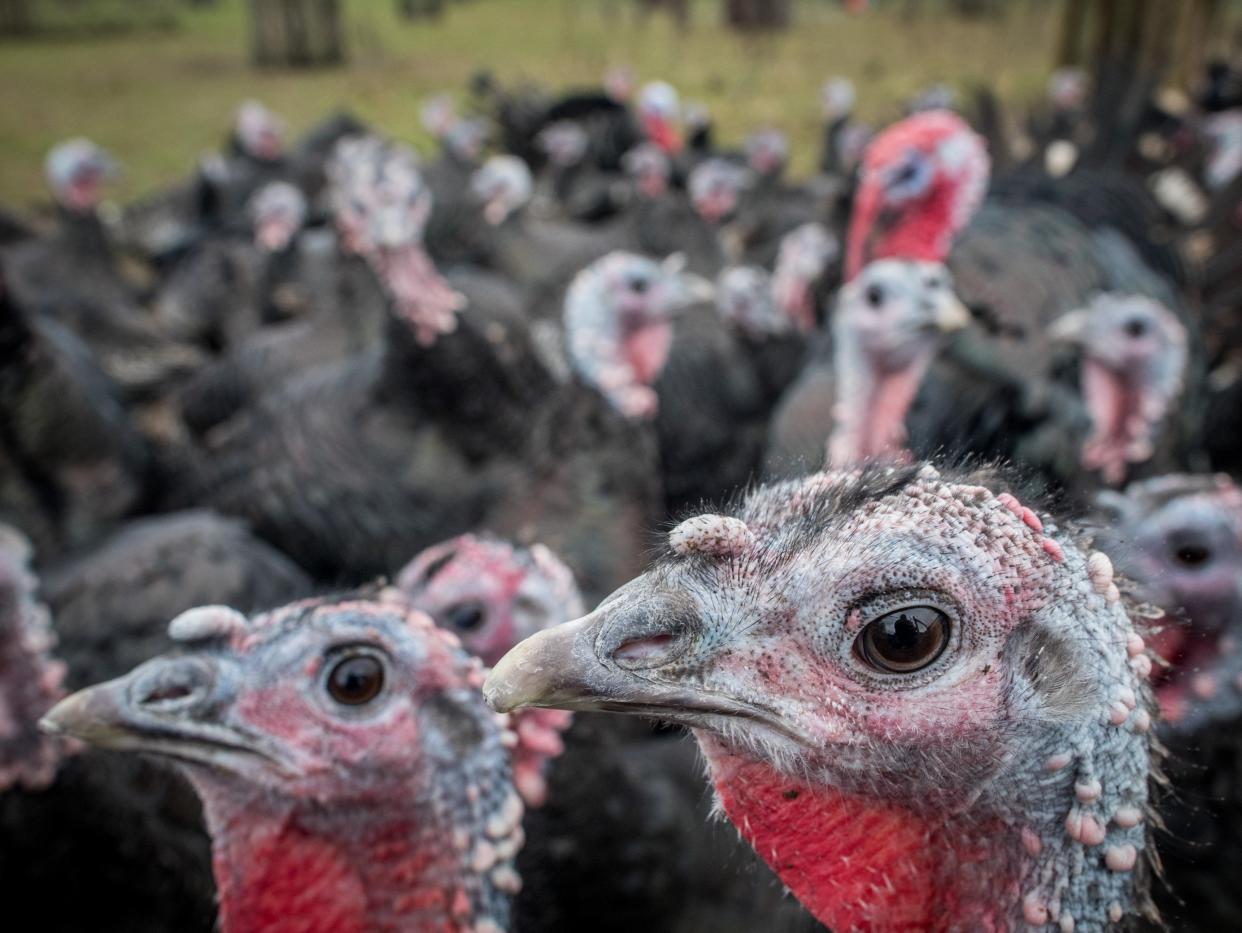Bird flu: Chickens and hens must be kept indoors – but their meat and eggs may still be labelled ‘free-range’

Eggs and meat from millions of hens, chickens, turkeys and geese will be sold as free-range – even though the government has ordered the birds into lockdown indoors to prevent bird flu spreading.
And the RSPCA is warning that the stress of being cooped up could make birds more susceptible than usual to disease.
From 14 December, all birds – including free-range ones – must be kept indoors by law to prevent contact with migrating wild birds that could be carrying the disease, the chief vets of England, Scotland and Wales announced on Thursday.
Keepers will also have to follow strict biosecurity measures.
It follows outbreaks of the H5N8 strain of avian influenza, which led to captive birds and poultry flocks being culled in Cheshire, Herefordshire, Gloucestershire, Leicestershire and North Yorkshire, as well as cases in wild birds across the UK.
Britain’s bird flu threat level was raised from “low” to “medium” in October after two swans were infected in the Netherlands.
Last month a report warned that intensively reared chicken for supermarket meat was creating an ideal environment for new pandemic viruses to emerge.
A new bird flu virus with “high transmissibility” would make Covid-19 appear mild, the authors warned.
One strain of bird flu, H7N9, has caused 1,568 cases in humans and 616 deaths worldwide since 2013, according to the UN Food and Agriculture Organisation.
But public health chiefs said the risk to human health from the H5N8 strain was very low.
However, the RSPCA said the welfare of free-range birds may be harmed if they are suddenly confined.
“While it’s far from ideal for free-range birds to be housed indoors, it is important that government restrictions are followed to help prevent the spread of avian flu from wild to farmed birds,” a spokesperson said.
But she went on: “It is a concern that the welfare of free-range birds may be affected if they are suddenly confined. The loss of their normal freedom could cause them considerable stress, and in some cases could lead to undesirable behaviours, such as feather-pecking and aggressive behaviour.
“Stressed birds also have an increased risk of disease, therefore we are cautious that the severity of the disease outbreak should be considered and free-range birds brought indoors only if the action is proportionate to the risk and required only as a last resort.”
Under EU law, free-range laying hens can be kept indoors for up to 16 weeks but their eggs still be labelled free-range.
Meat birds can keep their free-range status so long as they have spent at least half their lives with either access to outside areas or housed during the fixed 12-week grace period. Free-range certification allows birds to be indoors so long as they have space to roam.
Compassion in World Farming (CiWF) warned that if free-range birds were wrongly put into intensive-system housing, they would be more at risk of picking up viruses, which spread quickly in crowded conditions.
Phil Brooke, of CiWF, said: “If a virus gets indoors, it will spread much faster than in an outdoor flock, partly due to the ventilation and partly due to the crowding indoors.
“The evidence we have seen does not suggest that free-range poultry, with the exception of waterfowl, are particularly likely to become infected. People are the key risk and, once in the shed, the virus will spread faster.
“There is also evidence to suggest that intensive systems come with a higher risk that lower path viruses will mutate and multiply due to less robust, fast-growing birds and the high level of crowding.”
He said authorities should keep the indoor period as short as possible and farmers ensure the welfare of birds temporarily confined indoors.
More than 10,000 birds in Yorkshire were culled early last month after a bird flu outbreak.
Read More
UK bird flu threat level raised after swans infected in Netherlands
Mass turkey cull after bird flu discovered at fattening farm
Bird flu outbreak triggers Britain-wide prevention zone
Cheap supermarket chicken ‘risking catastrophic new pandemics’
Scientists create 'mutant bird flu' to prepare for possible pandemic


